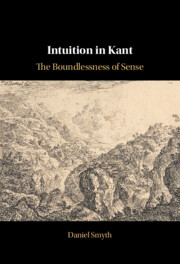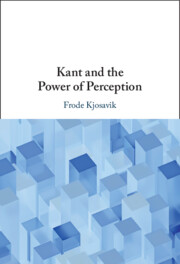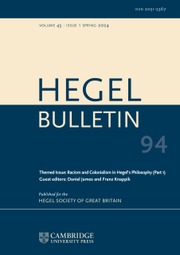Intuition in Kant
In this book Daniel Smyth offers a comprehensive overview of Immanuel Kant's conception of intuition in all its species – divine, receptive, sensible, and human. Kant considers sense perception a paradigm of intuition, yet claims that we can represent infinities in intuition, despite the finitude of sense perception. Smyth examines this heterodox combination of commitments and argues that the various features Kant ascribes to intuition are meant to remedy specific cognitive shortcomings that arise from the discursivity of our intellect Intuition acting as the intellect's cognitive partner to make knowledge possible. He reconstructs Kant's conception of intuition and its role in his philosophy of mind, epistemology, and philosophy of mathematics, and shows that Kant's conception of sensibility is as innovative and revolutionary as his much-debated theory of the understanding.
- Demonstrates the relevance of Kant's revolutionary philosophical methodology to the content of his views in epistemology and philosophy of mind
- Highlights the centrality of infinitary structure to Kant's conception of intuition
- Offers a unifying account of the various species of Kantian intuition (divine, receptive, sensible, human) as well as the diverse features Kant attributes to it (singularity, immediacy, etc.)
Reviews & endorsements
'This highly engaging book offers a convincing and original interpretation of what it dubs 'Kant's apperceptive approach to the cognitive faculties,' revealing among other things its surprising implications for the nature of sensibility and intuition. Ranging over Kant's methodology, philosophy of mind, logic, epistemology, and philosophy of mathematics, Smyth brings fresh light to a number of key ideas and distinctions in Kant's mature theoretical philosophy.' James Messina, University of Wisconsin-Madison
'As far as I can say, there is no comparable book on Kant that has ever investigated Kant's conception of the senses in the way in which it is investigated here, namely as a capacity for cognition, as it is known through self-consciousness. I think this perspective on the senses is really fascinating and makes an important - and certainly provocative - contribution to our understanding of ourselves as sensible beings. I highly recommend the book.' Andrea Kern, Professor Philosophy, University of Leipzig
Product details
March 2024Hardback
9781009330312
274 pages
235 × 158 × 21 mm
0.55kg
Available
Table of Contents
- Introduction: from infinity to givenness: Kant's apperceptive faculty psychology and his Top-Down approach to intuition
- 1. Reason's self-knowledge and Kant's critical methodology
- 2. Synthetic judgment and intuition: the sensibility/understanding distinction in the 'Introduction'
- 3. An apperceptive approach to the transcendental aesthetic
- 4. Exposition, conceptual analysis, and apperception
- 5. Infinity, discursivity, givenness: the intuitive roots of spatial representation
- 6. Prolegomena to a Stufenleiter of Kantian intuition
- 7. A Stufenleiter of Kantian intuition
- Part I. Intuition Überhaupt and Spontaneous Intuition:
- 8. A Stufenleiter of Kantian intuition
- Part II. Receptivity and Sensibility
- Bibliography
- Index.




